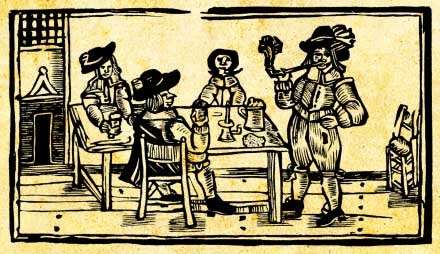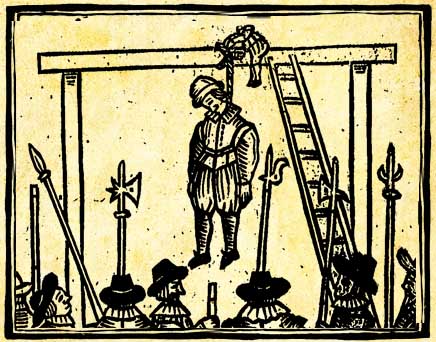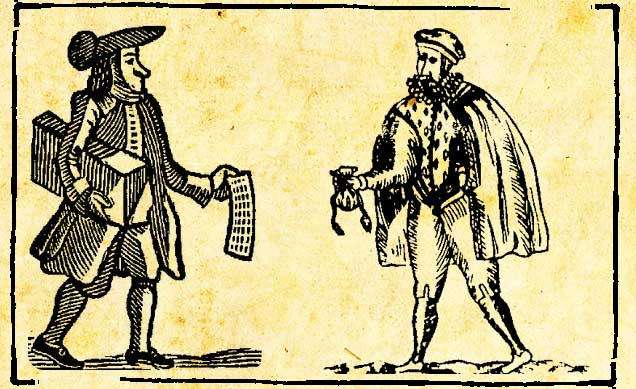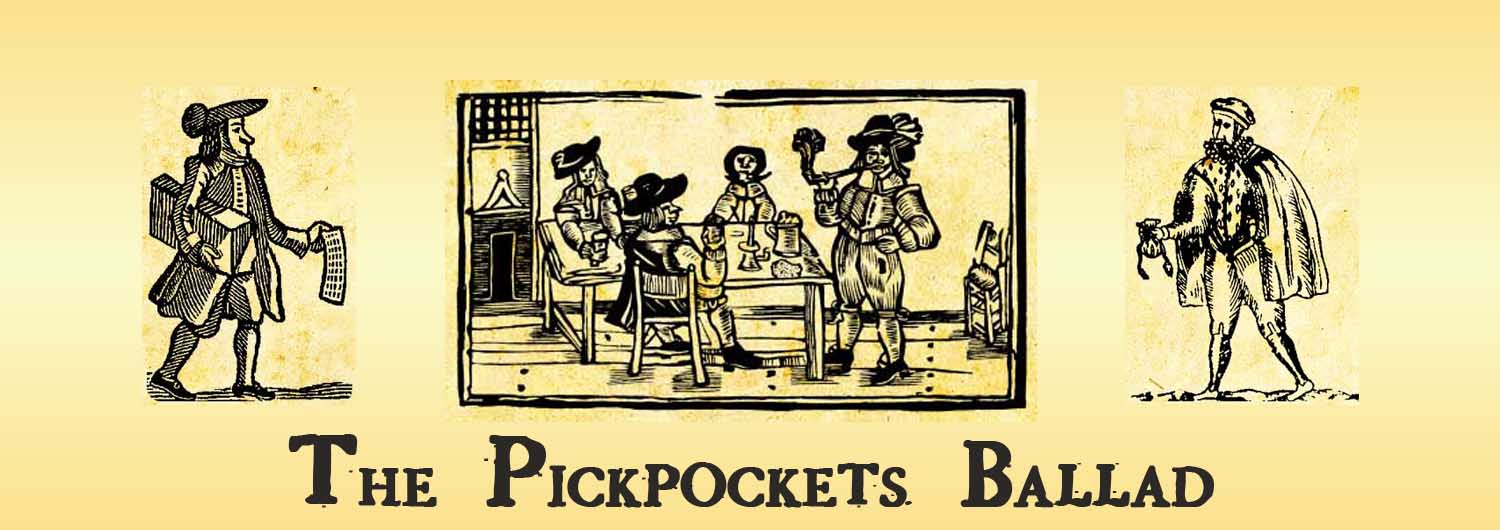or The Ballad of Sinister Sam and Dexterous Dan

Sinister Sam and Dexterous Dan
worked well together, as two men can.
Picked rich folks pockets on all of the ways
on markets, festivals, hanging days.
Sam he was dark and favoured his left,
Dan, though, was fair and his fingers were deft.
Sam’s garb ever was sober and plain,
while Dan dressed up fancy, his style was vain.
Gents the two looked, however they dressed,
and gentry crowds were always the best
for handkerchiefs, watches, small boxes of snuff,
scent in fine vials, bank notes and silk stuff.
The best day of all, they afterwards claimed,
was the day that Rudolph was publicly maimed.
(Punishment cruel to cut a man’s face
'fore hanging him high – but done to disgrace.)
When Rambling Rudolph the Highwayman King
was brought into town to kick and to swing,
witness to justice, the gentry all came;
Rudolph had robbed them all one and the same.
Then Dexterous Dan moved smooth 'mongst the crowd
and robbed them again as they shouted aloud.
"Hang Rudolph!" They cried. "Let him swing in the breeze!"
As Sinister Sam plucked their wallets with ease.
After, the two, at the sign of The Wise,
sat for a drink and divvied the prize.
Then homeward together in concord they strolled
passed the gallows where Rudolph's poor body hung cold.
With his head all askew and his eyes bulging out,
the cuts on his cheeks – he was dead, have no doubt.
Yet the gibbeted corpse cried out as they passed:
"Oh where is my share?" And the two stood aghast.
"Oh, Dexterous Dan! Oh, Sinister Sam!
Good business you've done, won't you give me a dram?"
"Give wine to a ghost?" Said Sam. "Not today!
I'd sooner throw all of our takings away."
"Peace, Rudolph," said Dan to the corpse in the breeze,
"I'll pour you a draught. May your spirit be eased."
And he poured out some wine and the earth drank it down
but Sam, stood beside him, looked on with a frown.
"Oh Dan," said the spirit, "may your ending be good,
May you die in your bed and be coffined in wood.
But hard-hearted Sam, in pain will you end,
On a gallows, like me, with nary a friend."

About The Pickpockets’ Ballad
This began life as a response to a flash prompt on the website of Writers Abroad, the international writers peer group of which I am a member. (It’s neither here nor there that I was the one who put the prompt up. I didn’t come up with the idea for the ballad till the moment I sat down to write.)
When I wrote it I had no particular tune in mind, though I think it ought to be possible to set it to a folk melody. I tried to keep the lines to 9 or 10 syllables each, with 4 stressed syllables (though I fear I wandered off in a few cases). Poems – especially ones that rhyme – always take me a hell of long time to write, and this was no exception. Not least because I rushed the ending. I wanted to get on with other things. I got some feedback about that from the others on Writers Abroad especially from my Masterclass companion Debbie Hubbard. (We’re following a Masterclass course together.)
To be able to post it here, I had to go back, unpick it and write more lines. The ending is much more satisfactory now, I think.
This post is the first I’ve added to my Articulations category for awhile. For a long time now, many of my stories and poems have gone into a metaphorical desk drawer. (They’re actually on a hard disc in the computer. 🙂 ) Since joining Writers Abroad, I’ve started submitting them instead to on-line and print magazines. But the Pickpockets’ Ballad – I just don’t know where I could send it. So, instead, it’s here for your delectation and delight.

Illustrations and header image font
The illustrations are all adapted from woodcuts published on-line. I’m going to guess they are all long out of copyright since they appear to date from the 1600s and 1700s. If I’ve inadvertently infringed anyone’s copyright in any of these images, please contact me and I’ll replace it. The lettering in the header image is from a font called GrandjeanPW. Based on the typography of French engraver Philippe Grandjean, it is “a 17th century font that was created by Intellecta Design in 2005”. Available from fontspace.com here.




